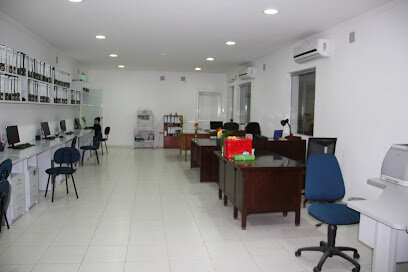Best Nursing Home Abuse Lawyers in Asunción
Share your needs with us, get contacted by law firms.
Free. Takes 2 min.
List of the best lawyers in Asunción, Paraguay
About Nursing Home Abuse Law in Asunción, Paraguay
Nursing home abuse in Asunción, Paraguay involves any intentional act or negligence that results in harm or a serious risk of harm to a resident of a nursing facility. This can include physical, emotional, sexual, or financial abuse, as well as neglect. With a rise in the elderly population, ensuring their protection in nursing homes has become a paramount concern. Asunción, like the rest of Paraguay, strives to enforce laws and regulations designed to uphold the rights and safety of its elderly citizens.
Why You May Need a Lawyer
Many situations necessitate legal assistance concerning nursing home abuse. These include cases where there is a suspicion of abuse or neglect, visible physical injuries, sudden changes in a resident’s financial status, unexplained weight loss, or emotional distress observed in a resident. A lawyer can provide critical legal guidance, help gather and present evidence, navigate the complexities of the legal system, and advocate for the rights and welfare of the affected individual.
Local Laws Overview
Local laws in Paraguay concerning nursing home abuse are embedded within broader national policies on elder care and human rights. These laws mandate that nursing homes adhere to certain standards, including adequate staffing, proper training, and a safe living environment to prevent abuse and neglect. Specific regulations require immediate reporting of abuse, protection of residents' rights, and thorough investigations into any allegations of mismanagement or mistreatment. The authorities may impose significant penalties on facilities found violating these laws.
Frequently Asked Questions
What constitutes nursing home abuse?
Nursing home abuse includes any conduct that causes harm or distress to an elderly resident. This can be physical, emotional, financial, or sexual and includes neglect or abandonment.
How can I recognize signs of nursing home abuse?
Common signs include unexplained injuries, malnutrition, withdrawal from social interactions, sudden changes in behavior, poor hygiene, and unexplained financial transactions.
What should I do if I suspect nursing home abuse?
If you suspect abuse, it is important to document your observations, speak to the resident about their experience if possible, and report your concerns to the nursing home administration or local authorities.
Can nursing home staff be held liable for abuse?
Yes, staff members can be held personally liable for abusive actions. Additionally, the nursing home facility can be held accountable for failing to prevent abuse or neglect.
What legal actions can be taken against a nursing home suspected of abuse?
Legal actions can range from filing a complaint with regulatory bodies to pursuing civil lawsuits for damages. In severe cases, criminal charges may also be brought against the perpetrators.
Are there deadlines for taking legal action in nursing home abuse cases?
Yes, there are statutes of limitations that dictate the time frame within which legal action must be initiated. Consulting with a lawyer early can help ensure timely filing.
Can family members request access to nursing home records?
Family members may have the right to access medical and other relevant records of a resident, but this will often require the consent of the resident, especially if they are legally competent.
What role does the government play in preventing nursing home abuse?
The government enforces regulations on nursing home standards, investigates reports of abuse, and can sanction facilities failing to comply with laws designed to protect residents.
How can I choose a safe nursing home for my loved one?
Conduct thorough research on the facility’s accreditation, review records of past violations, visit the facility to observe conditions, and speak with current residents and staff.
What are my loved one's rights as a nursing home resident?
Residents are entitled to respectful and dignified care, privacy, personal autonomy, and access to family, among other rights. Facilities must also ensure they are free from abuse or neglect.
Additional Resources
For further assistance, individuals can contact local organizations that focus on elder care and protection, such as the Paraguay Ministry of Health and Social Welfare, or international bodies like the International Federation on Ageing. Legal aid services and non-governmental organizations dedicated to human rights can also provide valuable support and resources.
Next Steps
If legal assistance is needed, it is crucial to consult with a lawyer specializing in elder law or personal injury specific to nursing home abuse. Gather all relevant documentation, including medical records and witness statements, and make initial contact with legal services or advocacy groups that can help guide the process. Taking proactive steps can ensure the protection of vulnerable individuals and hold perpetrators accountable.
Lawzana helps you find the best lawyers and law firms in Asunción through a curated and pre-screened list of qualified legal professionals. Our platform offers rankings and detailed profiles of attorneys and law firms, allowing you to compare based on practice areas, including Nursing Home Abuse, experience, and client feedback.
Each profile includes a description of the firm's areas of practice, client reviews, team members and partners, year of establishment, spoken languages, office locations, contact information, social media presence, and any published articles or resources. Most firms on our platform speak English and are experienced in both local and international legal matters.
Get a quote from top-rated law firms in Asunción, Paraguay — quickly, securely, and without unnecessary hassle.
Disclaimer:
The information provided on this page is for general informational purposes only and does not constitute legal advice. While we strive to ensure the accuracy and relevance of the content, legal information may change over time, and interpretations of the law can vary. You should always consult with a qualified legal professional for advice specific to your situation.
We disclaim all liability for actions taken or not taken based on the content of this page. If you believe any information is incorrect or outdated, please contact us, and we will review and update it where appropriate.









